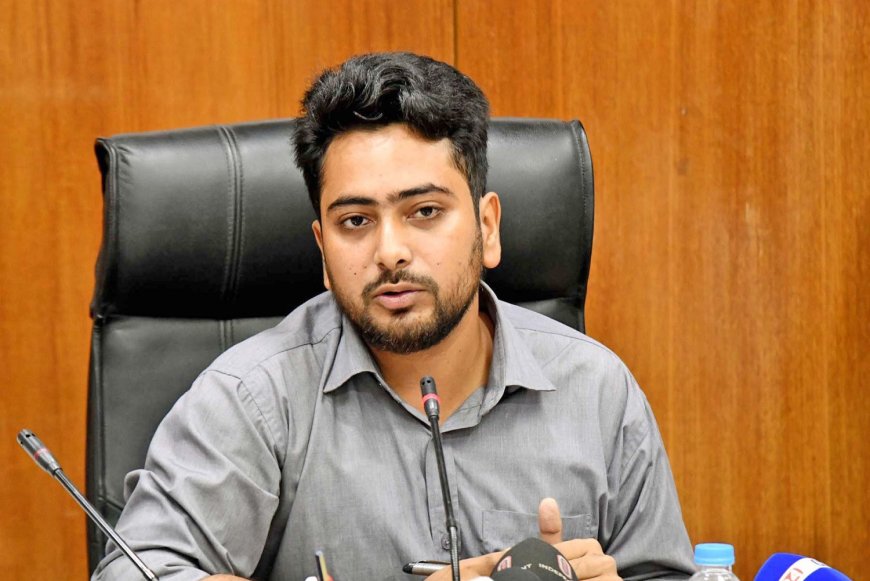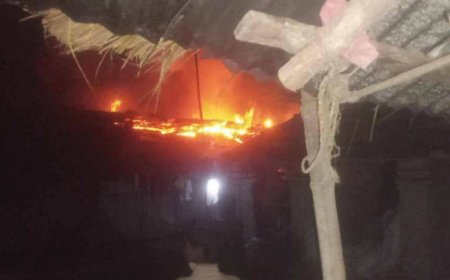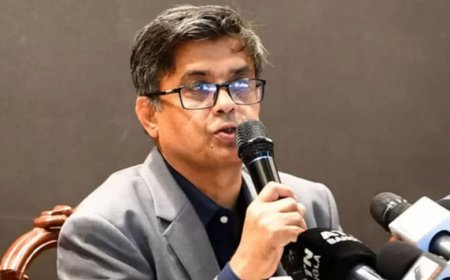Nahid tells BBC Hindi that India has no need to be concerned about minorities in Bangladesh
Today, BBC Hindi aired an interview with Nahid Islam, the interim government's adviser for Information and Broadcasting, in which he addressed issues of minority protection, India-Bangladesh relations, and recent incidents of communal violence. Here is an excerpt from the interview.

Question: India often expresses concerns regarding the safety of minorities in Bangladesh. How do you view this?
Nahid Islam: Bangladesh’s minorities are our citizens, and it is our duty to ensure their security. India need not be concerned about this. Instead, India should reflect on the violence that occurred last July and August. The relevant question is how India might support Bangladesh in addressing these challenges. This is the focus we should have in our discussions. Additionally, I must note that the Indian media has spread misinformation about our government, which India should address. We want fact-based discussions that enhance our bilateral relations.
Question: You mentioned India’s need to clarify its stance on the events of July-August. Could you explain further?
Nahid Islam: We would like to understand India’s position on the violence that took place in July-August, which involved the Awami League. Some nations have shown solidarity with the Bangladeshi people, but India has remained silent. Furthermore, India has granted refuge to an individual directly connected to these incidents.
Question: Are you suggesting India is disregarding recent violence in Bangladesh?
Nahid Islam: If India truly sympathizes with those who lost loved ones, the people of Bangladesh will view this positively. I would appreciate India’s support in ensuring that those responsible for the violence are held accountable.
Question: In August, India called on all parties to exercise restraint. However, some minority groups report experiencing severe mistreatment over the past three months. We have spoken to affected individuals who express distrust in the authorities. Are you aware of this, and what are your thoughts?
Nahid Islam: We are fully aware of the incidents and the hardships people have faced. It’s crucial to recognize that, without swift action, the situation could have worsened. For example, during Durga Puja, there were warnings of potential violence. We took precautions and deployed adequate security, ensuring a peaceful celebration. Our government has engaged with minority communities and assured them of protection.
Question: Some minority groups feel that, despite reassurances, sufficient action hasn’t been taken.
Nahid Islam: I would argue that no previous government has worked as closely with minority communities as we have in the past three months. Previous governments often exploited these issues for political gain, which eroded minority trust. We are working to rebuild that trust, though some issues require time to address.
Question: Concerns are being raised that after the Awami League’s tenure, extremist groups may gain strength, potentially creating security risks for both Bangladesh and India.
Nahid Islam: The people of Bangladesh reject extremism and violence; they want democratic governance. This perception stems from a narrative promoted by the Awami League, suggesting that, without them, extremism would grow. The Awami League has ruled for many years, and India has aligned with this view. But we must ask why Bangladesh’s internal politics should influence its relations with India. If India’s relationship were genuinely with the people of Bangladesh and not solely with the Awami League, this concern would be irrelevant. For instance, we do not question whether the BJP or Congress leads India. The same should apply here—our bilateral relations should not depend on the Awami League’s presence in power.
Question: Will the various projects between India and Bangladesh benefit both countries and the people of Bangladesh, or are they primarily advantageous to the Awami League? What’s your perspective?
Nahid Islam: This shouldn’t be seen solely from the Awami League’s perspective. If both countries support each other, they can achieve meaningful outcomes for both nations. We haven’t halted relations with any country or suspended any projects; everything is progressing as before.
Question: There are reports that Bangladesh is reviewing its investments with India. Could you update us on this review, and do you see potential for continued talks between the two countries?
Nahid Islam: Yes, we are reviewing projects, but this review isn’t exclusive to India. We are assessing projects with all partner countries to identify areas vulnerable to corruption or those that may not benefit Bangladesh effectively.
What's Your Reaction?





















































































